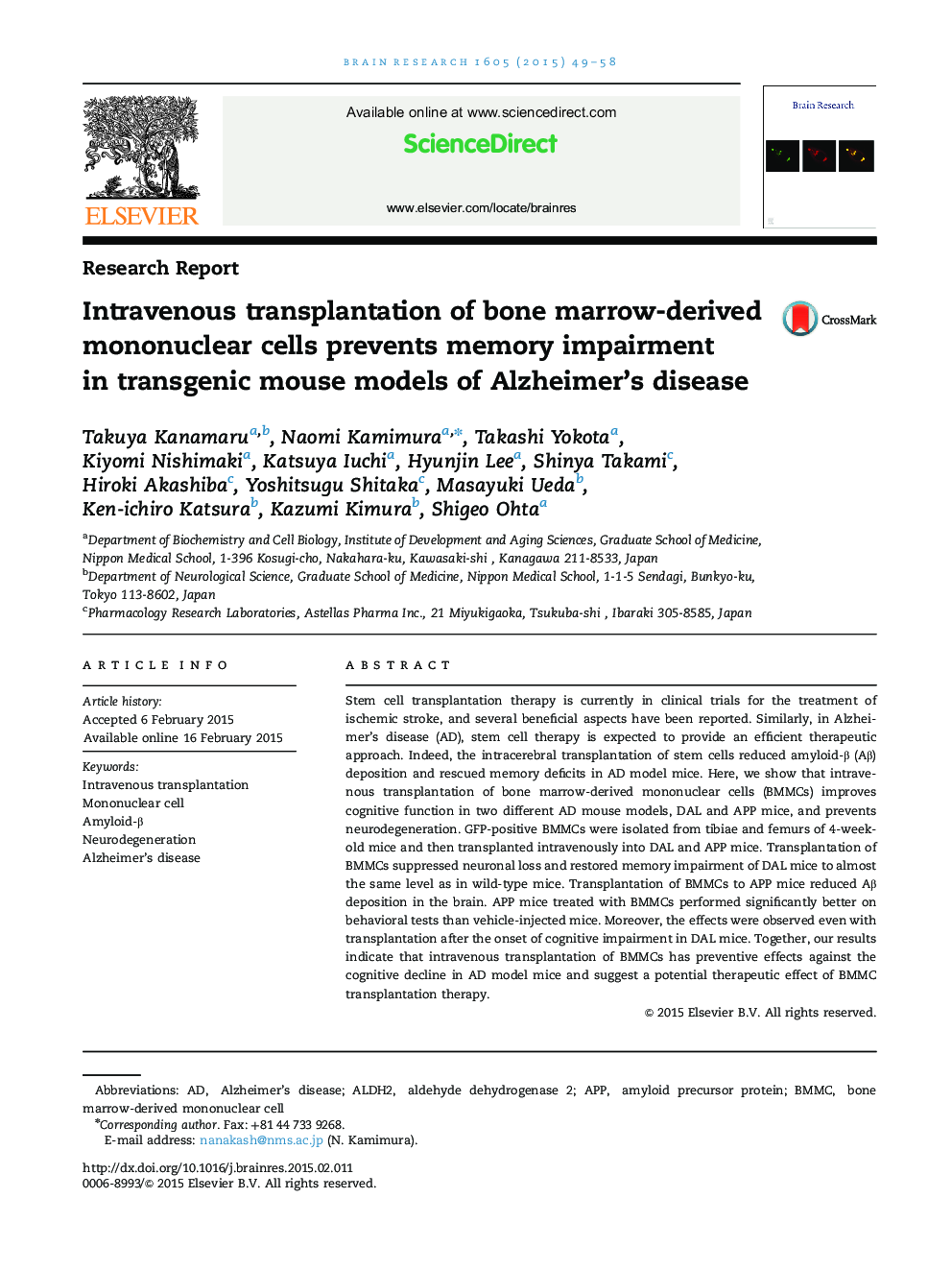| Article ID | Journal | Published Year | Pages | File Type |
|---|---|---|---|---|
| 4323863 | Brain Research | 2015 | 10 Pages |
•Intravenous transplants of BMMCs prevent cognitive impairment in AD mice.•BMMCs reduce amyloid-β deposition and suppress neurodegeneration.•BMMCs effectively improve AD symptoms even if they are transplanted after AD onset.•BMMCs are suitable for human clinical trials as a candidate therapeutic for AD.
Stem cell transplantation therapy is currently in clinical trials for the treatment of ischemic stroke, and several beneficial aspects have been reported. Similarly, in Alzheimer’s disease (AD), stem cell therapy is expected to provide an efficient therapeutic approach. Indeed, the intracerebral transplantation of stem cells reduced amyloid-β (Aβ) deposition and rescued memory deficits in AD model mice. Here, we show that intravenous transplantation of bone marrow-derived mononuclear cells (BMMCs) improves cognitive function in two different AD mouse models, DAL and APP mice, and prevents neurodegeneration. GFP-positive BMMCs were isolated from tibiae and femurs of 4-week-old mice and then transplanted intravenously into DAL and APP mice. Transplantation of BMMCs suppressed neuronal loss and restored memory impairment of DAL mice to almost the same level as in wild-type mice. Transplantation of BMMCs to APP mice reduced Aβ deposition in the brain. APP mice treated with BMMCs performed significantly better on behavioral tests than vehicle-injected mice. Moreover, the effects were observed even with transplantation after the onset of cognitive impairment in DAL mice. Together, our results indicate that intravenous transplantation of BMMCs has preventive effects against the cognitive decline in AD model mice and suggest a potential therapeutic effect of BMMC transplantation therapy.
